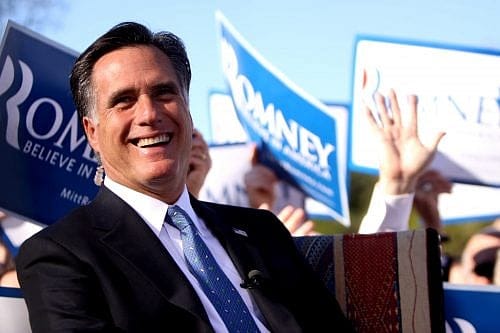The Return of Massachusetts Mitt

Mitt Romney's political career is winding down in the same fashion it began: As a token Republican trophy on the shelf of the Kennedy Dynasty.
On Friday, March 26, Romney was named the 2021 recipient of the John F. Kennedy Profile in Courage award. The Utah senator was dutifully obsequious. "I'm very appreciative of the honor," Romney acknowledged, "but also humbled by it."

